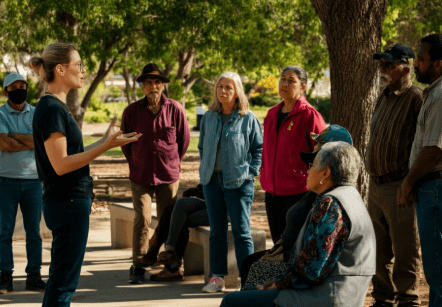Navigating the intricate landscape of land use and property development can be a complex affair, particularly when it comes to the process of rezoning land in Florida. Whether you are a private landowner, a developer, or a public official, understanding the steps and requirements involved in rezoning can make the difference between a smooth transition and a bureaucratic nightmare. Read on as we demystify the process of rezoning land in Florida, providing you with a clear roadmap to follow, key insights, and tips for navigating this essential aspect of land development and urban planning. Join us as we embark on a journey to chart your course through this crucial procedure.
As seasoned real estate investors, Steve Daria and Joleigh have successfully navigated the rezoning process in Florida multiple times. Their expertise highlights the importance of thorough research and proactive engagement with local planning authorities. By sharing their experiences, Steve and Joleigh aim to provide valuable insights to others looking to transition smoothly through the rezoning landscape.
What is Rezoning Land?
Before discussing the process of rezoning land in Florida, it’s essential to understand that rezoning land refers to the legal process of changing a parcel’s designated use.
This change is typically driven by real estate developers, urban planners, or property owners aiming to maximize the utility and value of their land.
Zoning laws, which local governments establish, dictate the types of activities permitted on specific parcels of land.
These zones include residential, commercial, industrial, agricultural, and mixed-use areas.

Why Rezoning Land is Important
Rezoning land is pivotal for several reasons:
Maximizes Property Value
- Increased Potential: Rezoning land to a more favorable classification, such as commercial or mixed-use, can unlock the property’s potential for higher-value developments.
- Expanded Usage: Changing zoning regulations to allow for denser development or commercial activities can attract more lucrative investment opportunities, enhancing the property’s marketability and value.
- Capitalizing on Demand: Adapting zoning to align with market demand for specific types of developments, such as residential or commercial projects, can capitalize on current trends and increase property value accordingly.
Ensures Proper Land Use
- Community Alignment: Rezoning ensures that land use conforms to the objectives outlined in local community development plans and zoning ordinances, promoting orderly and sustainable growth.
- Economic Viability: Rezoning can facilitate the development of properties in areas with high demand by aligning land use with financial needs and growth projections, fostering economic prosperity and vitality.
- Environmental Considerations: Zoning changes can incorporate environmental conservation measures and land use restrictions to protect natural resources and preserve ecological balance in the community.
Facilitates Development Projects
- Streamlined Processes: Rezoning can streamline the development approval process by providing clarity and consistency in land use regulations, expediting the implementation of construction projects.
- Encourages Investment: Clear and flexible zoning regulations attract developers and investors by signaling a favorable environment for development projects, encouraging investment in the community.
- Meeting Market Demands: Adjusting zoning classifications to accommodate changing market demands for housing, retail, or industrial spaces enables developers to respond effectively to consumer needs and preferences, driving economic growth and innovation.
Get Started: Get Your Cash Offer Below…
We are direct land buyers. There are no commissions or fees and no obligation whatsoever. Start below by sharing where your property is and where we can send your offer…
The Process of Rezoning Land in Florida
Understanding the step-by-step process of rezoning land in Florida is essential to ensure a seamless land-use transition.
1. Understand Local Zoning Laws
Before initiating the rezoning process, familiarize yourself with your municipality’s zoning laws and regulations.
Each city or county in Florida has its own zoning code and comprehensive plan that outlines the permitted uses of land.
2. Conduct a Feasibility Study
A feasibility study assesses whether the proposed rezoning is viable.
It involves evaluating the current zoning classification, the potential new classification, and the change’s impact on the surrounding area.
3. Engage with Stakeholders
Engage with residents, businesses, and government officials early to understand their concerns and gather support for your rezoning application.
4. Prepare a Rezoning Application
Prepare a detailed rezoning application that includes:
- A Description of the Property: Include the parcel number current and proposed zoning classification.
- Justification for Rezoning: Provide reasons for the proposed change and demonstrate how it aligns with the local comprehensive plan.
- Site Plan: Submit a site plan showing the proposed use of the property.
5. Submit the Application
Submit your rezoning application to the appropriate local government department, such as the Planning and Zoning Department.
6. Public Hearings
Attend public hearings where your rezoning application will be reviewed.
Be prepared to present your case and address any concerns from community members or officials.
7. The Decision By The Local Government
The local government will decide based on the planning staff’s recommendations, public hearings’ input, and the proposed rezoning’s compatibility with the comprehensive plan.
8. Appeal Process
If your application is denied, you can make a plea conclusion, modify your proposal, and reapply.
Strategies for Successful Rezoning
Explore essential strategies to ensure a smooth and successful rezoning process for your land in Florida.
Align with Comprehensive Plans
Ensure that your rezoning proposal aligns with the local comprehensive plan, which outlines the long-term vision for community development.
Show Community Benefit
Demonstrate how the rezoning will benefit the community, such as creating jobs, providing needed services, or improving infrastructure.
Mitigate Negative Impacts
Address potential negative impacts of the rezoning, such as increased traffic or environmental concerns, and propose mitigation measures.
Build Support
To strengthen your case, gather support from local collaborators, including residents, business owners, and community leaders.

Tips for Navigating the Process of Rezoning Land in Florida
Here’s a guide to help you navigate the complexities of rezoning land in the Sunshine State.
Hire Professionals
- Engage Land Use Attorneys: Experienced attorneys specialized in land use laws can navigate the legal complexities and effectively represent your interests.
- Urban Planners: Urban planners can provide valuable insights into zoning regulations, land use policies, and community development plans, helping you strategize your rezoning efforts.
- Civil Engineers: Civil engineers can assess the technical aspects of your proposed land use changes, including infrastructure requirements and environmental impact assessments, ensuring compliance with regulatory standards.
Stay Informed
- Monitor Local Zoning Laws: Stay abreast of any changes or updates to local zoning ordinances, as they can impact your rezoning application and approval process.
- Comprehensive Plans: Monitor updates to comprehensive plans issued by local planning authorities, which outline long-term land use goals and policies that may influence rezoning decisions.
Be Persistent
- Prepare for Lengthy Process: Understand that the rezoning process can be time-consuming, involving multiple stages such as application submission, review, public hearings, and approval.
- Anticipate Multiple Rounds: Be prepared for the possibility of revisions to your rezoning application based on feedback from planning officials or community stakeholders, requiring resubmission and further review.
Conclusion
Rezoning land in Florida is a complex but rewarding process that can unlock significant value and new ventures for real estate developers, urban planners, investors, and property owners. By understanding the steps involved, aligning with local comprehensive plans, and engaging with stakeholders, you can successfully navigate the process of rezoning land in Florida and achieve your development goals.
Ready to take the next step in your rezoning journey? Whether you are a seasoned developer or a first-time property owner, this guide provides the knowledge and strategies you need to succeed. Embrace the opportunities rezoning land can offer and chart your course toward a prosperous future in Florida’s dynamic real estate landscape.
**NOTICE: Please note that the content presented in this post is intended solely for informational and educational purposes. It should not be construed as legal or financial advice or relied upon as a replacement for consultation with a qualified attorney or CPA. For specific guidance on legal or financial matters, readers are encouraged to seek professional assistance from an attorney, CPA, or other appropriate professional regarding the subject matter.
